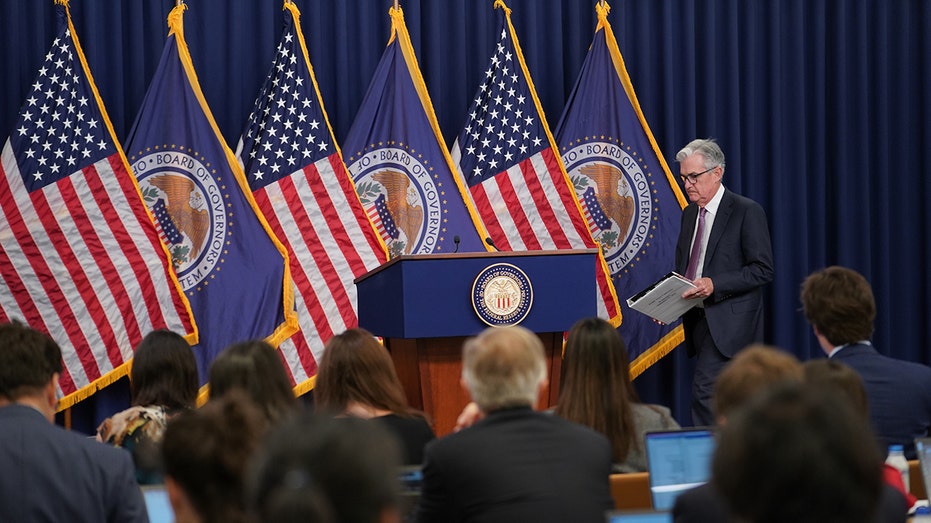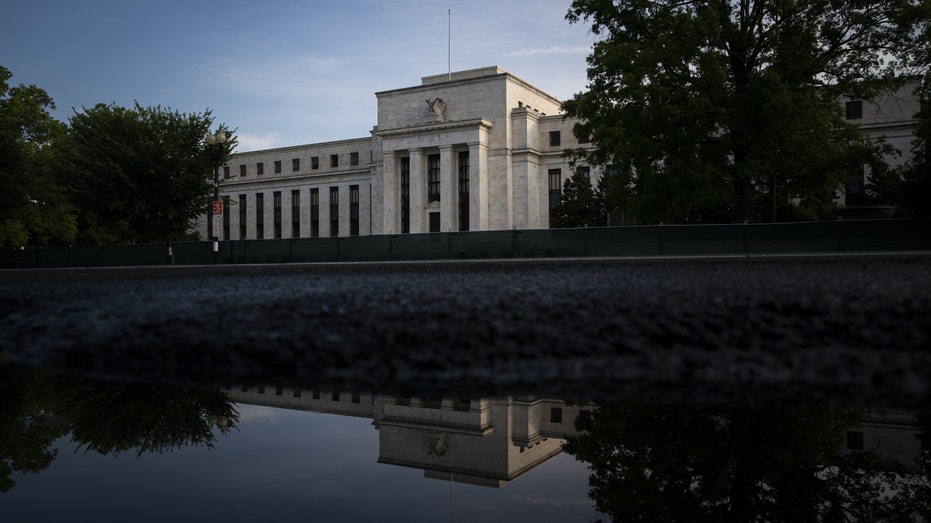Bond market crash foreshadows new lows for US stock market, BofA warns
Losses in government bonds at the highest level since 1920s
Inflation will not go away until Fed kills the consumer: Gerald Storch
Storch Advisors founder and CEO says the Fed's inflation policy will stifle consumer spending ahead of the holidays on 'Cavuto: Coast to Coast.'
The bond market is on track for its worst year since 1949 and will continue to batter stocks over the coming months, according to an analyst note from Bank of America obtained by FOX Business.
Bonds have tumbled as the Federal Reserve ratchets up interest rates as it tries to crush stubbornly high inflation, with two-year U.S. Treasuries posting their longest losing streak since at least 1976.
On Monday, the 2 Year Treasury yield rose 0.103 percentage point to 4.315%, a new 52-week high and the highest since August 14, 2007. The 10 Year Treasury also reached a 52-week high, up 0.183 percentage point to 3.878%, the highest since April 9, 2010.
| Ticker | Security | Last | Change | Change % |
|---|---|---|---|---|
| UTWO | RBB FUND INC US TREAS 2 YR NT ETF | 48.58 | -0.01 | -0.03% |
| UTEN | RBB FUND INC US TREAS 10 YR NT ETF | 43.98 | -0.01 | -0.02% |
The ongoing crash in the bond market, however, could lead to a credit event that would essentially drag down the U.S. dollar, U.S. technology stocks and long private equity trades in the long-term, according to the Bank of America strategists.
"Bond crash in recent weeks means highs in credit spreads, lows in stocks are not yet in," the analysts, led by Chief Investment Strategist Michael Hartnett, wrote.

Jerome Powell, chairman of the U.S. Federal Reserve, arrives to speak during a news conference following a Federal Open Market Committee (FOMC) meeting in Washington, D.C., US, on Wed., Sept 21, 2022. (Photographer: Sarah Silbiger/Bloomberg via Getty Images / Getty Images)
BILLIONAIRE DAVID RUBENSTEIN WARNS INFLATION WILL BE 'DIFFICULT' FOR THE FED TO REDUCE
For the week through Sept. 21, cash saw inflows of $30.3 billion, compared to a loss of $7.8 billion for global equity funds and outflows of $6.9 billion for bond funds. Gold saw a decline of $400 million.
The disparity is the result of lackluster investor sentiment, which is "unquestionably" the worst it's been since the 2008 global financial crisis, Hartnett said. Losses in government bonds are at the highest level since the 1920s.
This comes amid growing fears about the threat of an impending recession after the Federal Reserve signaled this week that it's committed to crushing runaway inflation, even if it means risking a downturn.
Policymakers approved their fifth consecutive interest rate hike and laid out an aggressive path for future increases that will put the federal funds rate range well into restrictive territory.
"The chances of a soft landing are likely to diminish to the extent that policy needs to be more restrictive, or restrictive for longer," Federal Reserve Chairman Jerome Powell told reporters in Washington. "Nonetheless, we’re committed to getting inflation back down to 2%. We think a failure to restore price stability would mean far greater pain."

The Marriner S. Eccles Federal Reserve building in Washington, D.C., Wed., July 6, 2022. (Photographer: Al Drago/Bloomberg via Getty Images / Getty Images)
FED'S POWELL ABANDONS PROMISE OF 'SOFT LANDING' AMID INFLATION FIGHT
Hartnett sees the S&P falling to somewhere between 3,300 and 3,500 points, up to 10% below current levels.
Goldman Sachs analysts also slashed their year-end outlook by 16%, predicting the S&P will close the year around 3,600 points. The benchmark index — which has gotten clobbered in a widespread trade-off since the Fed meeting — is currently trading around 3,681 points.
CLICK HERE TO READ MORE ON FOX BUSINESS
"Most portfolio managers believe that in order to corral inflation the Fed will have to hike rates sufficiently high that it will result in a U.S. recession at some point during 2023," the Goldman Sachs analysts said.





















